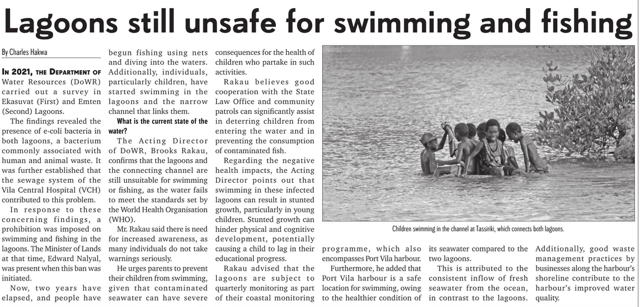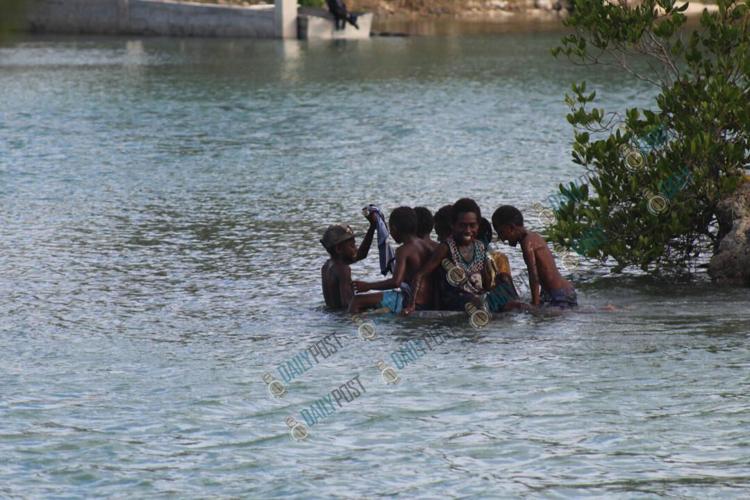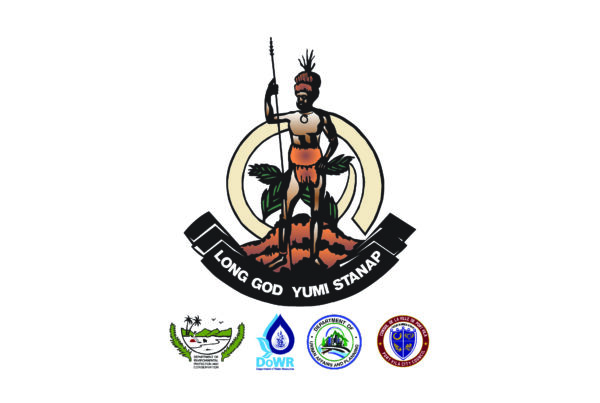
By Charles Hakwa
In 2021, the Department of Water Resources (DoWR) carried out a survey in Ekasuvat (First) and Emten (Second) Lagoons.
The findings revealed the presence of e-coli bacteria in both lagoons, a bacterium commonly associated with human and animal waste. It was further established that the sewage system of the Vila Central Hospital (VCH) contributed to this problem.
In response to these concerning findings, a prohibition was imposed on swimming and fishing in the lagoons. The Minister of Lands at that time, Edward Nalyal, was present when this ban was initiated.
Now, two years have elapsed, and people have begun fishing using nets and diving into the waters. Additionally, individuals, particularly children, have started swimming in the lagoons and the narrow channel that links them.
What is the current state of the water?
The Acting Director of DoWR, Brooks Rakau, confirms that the lagoons and the connecting channel are still unsuitable for swimming or fishing, as the water fails to meet the standards set by the World Health Organisation (WHO).
Mr. Rakau said there is need for increased awareness, as many individuals do not take warnings seriously.
He urges parents to prevent their children from swimming, given that contaminated seawater can have severe consequences for the health of children who partake in such activities.
Rakau believes good cooperation with the State Law Office and community patrols can significantly assist in deterring children from entering the water and in preventing the consumption of contaminated fish.
Regarding the negative health impacts, the Acting Director points out that swimming in these infected lagoons can result in stunted growth, particularly in young children. Stunted growth can hinder physical and cognitive development, potentially causing a child to lag in their educational progress.
Rakau advised that the lagoons are subject to quarterly monitoring as part of their coastal monitoring programme, which also encompasses Port Vila harbour.
Furthermore, he added that Port Vila harbour is a safe location for swimming, owing to the healthier condition of its seawater compared to the two lagoons.
This is attributed to the consistent inflow of fresh seawater from the ocean, in contrast to the lagoons. Additionally, good waste management practices by businesses along the harbour’s shoreline contribute to the harbour’s improved water quality.
From DailyPost Vanuatu.




